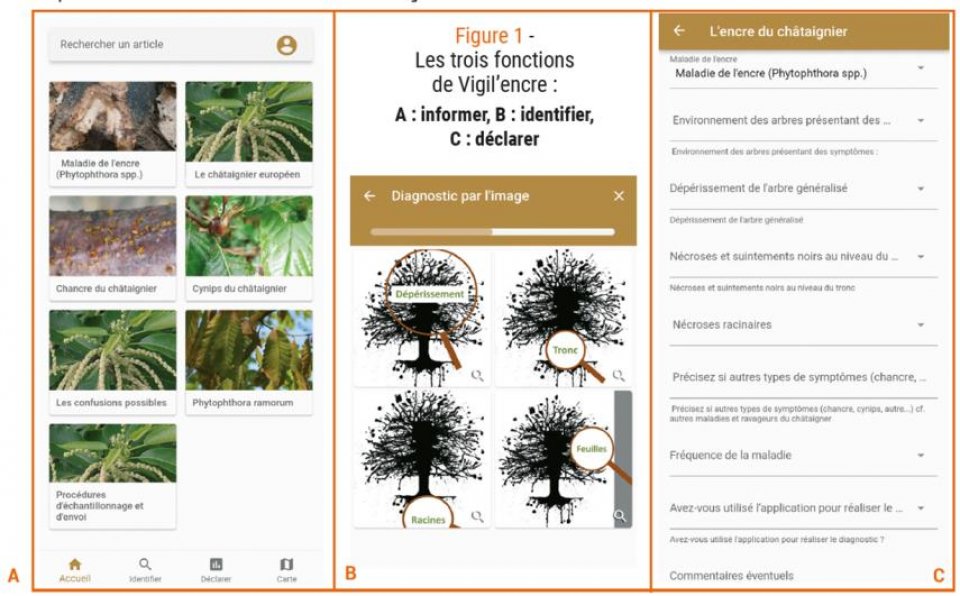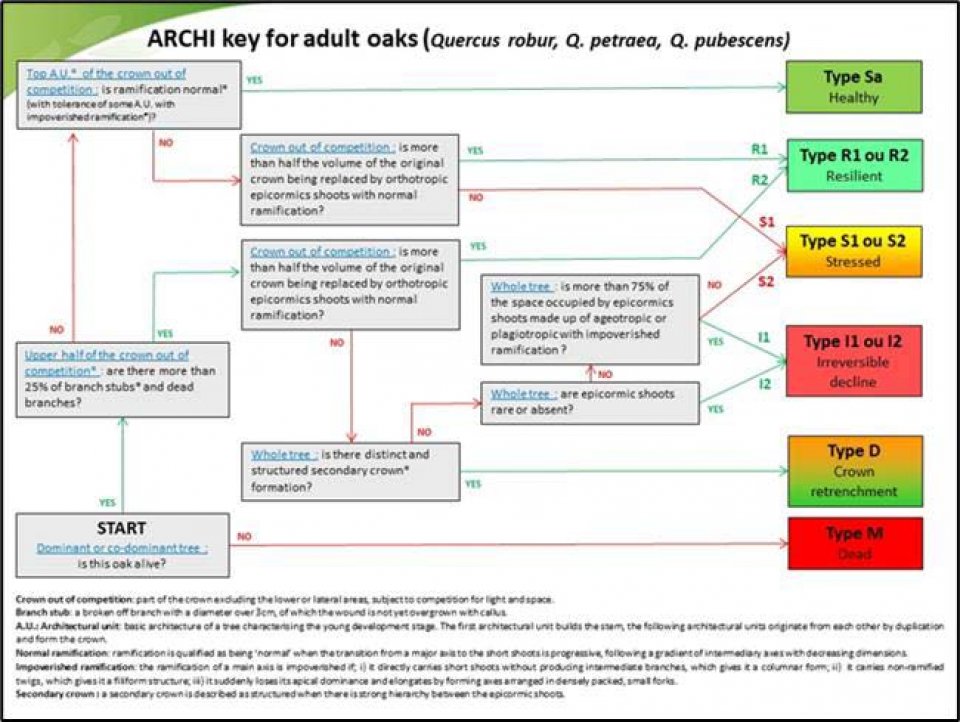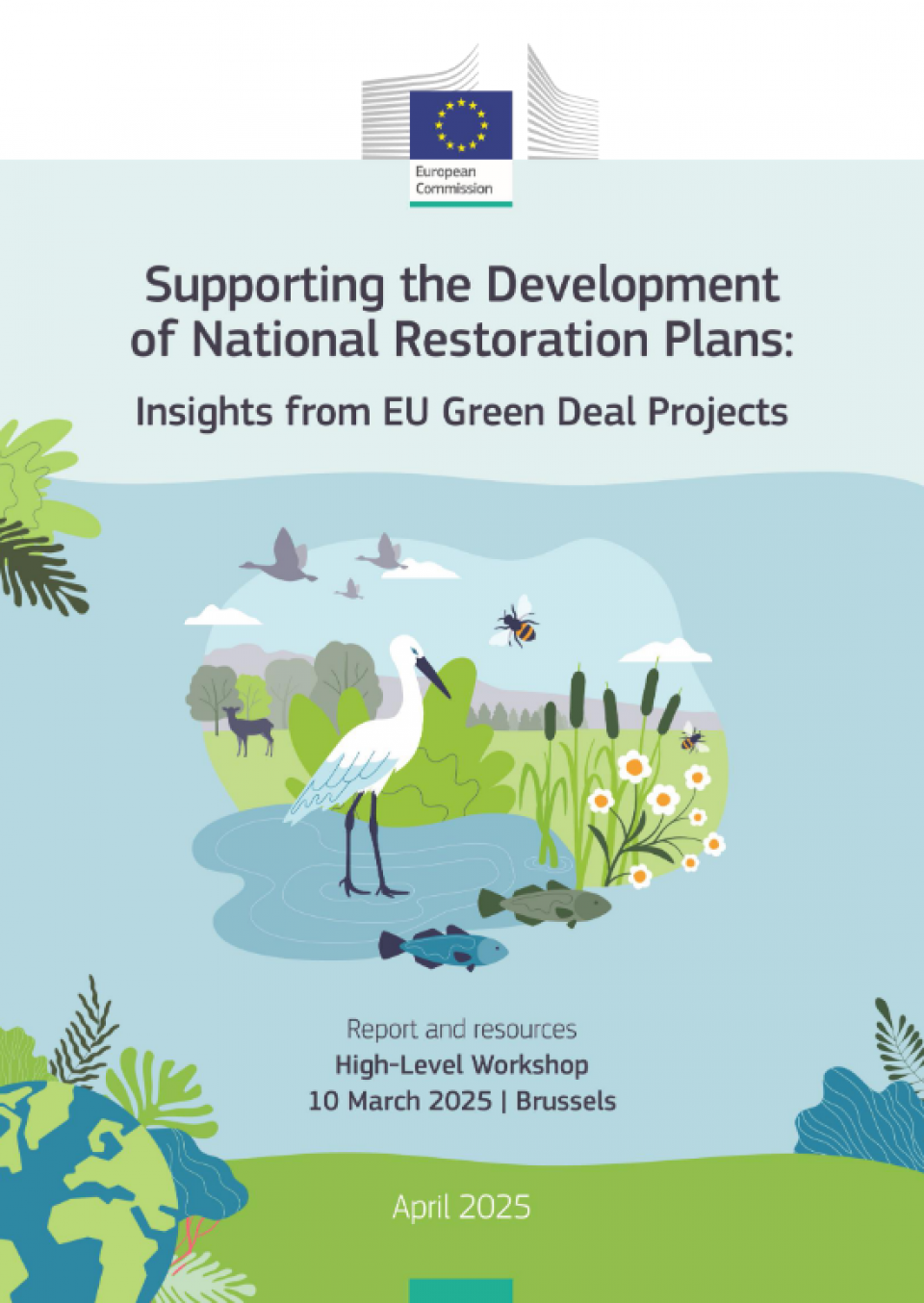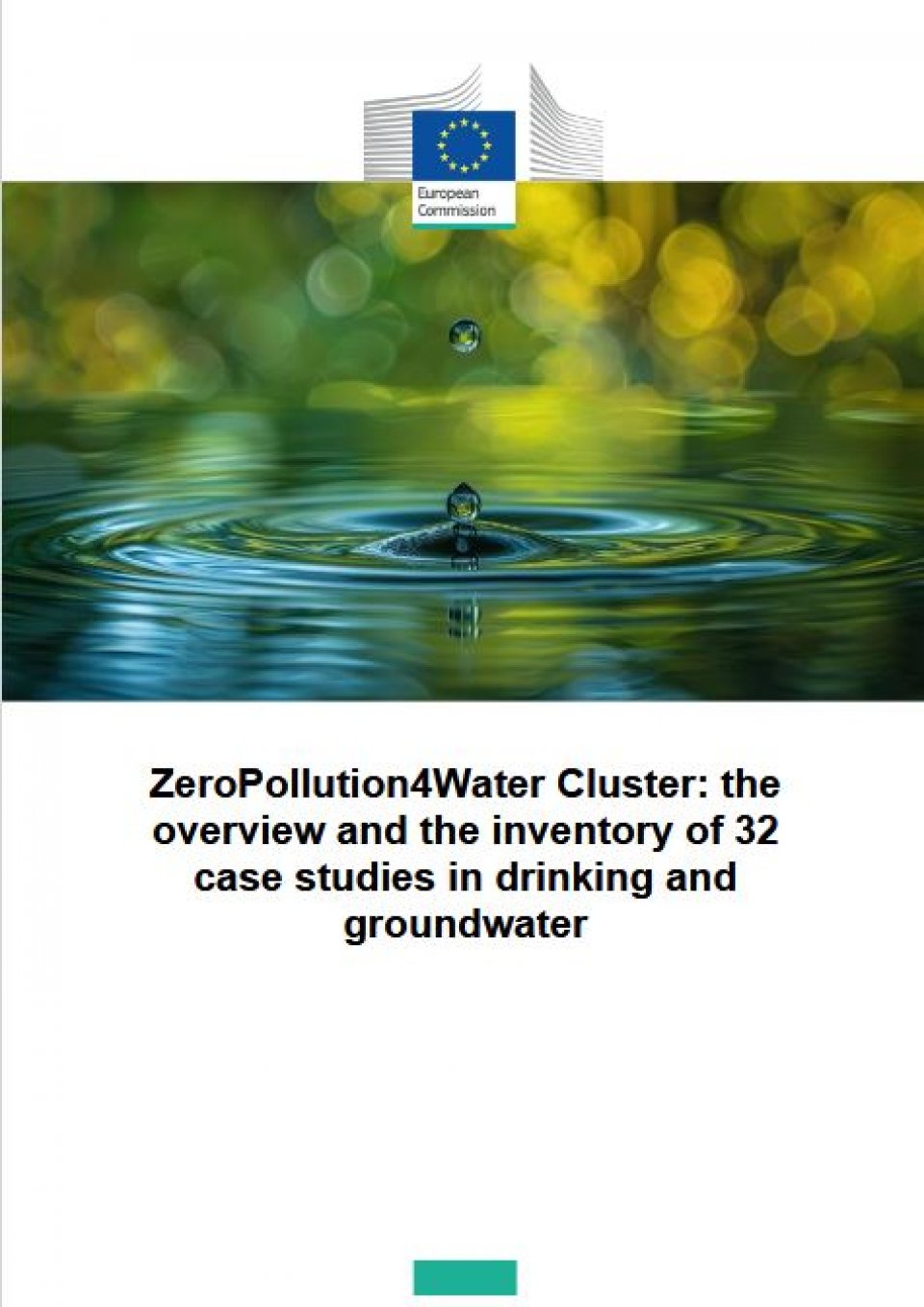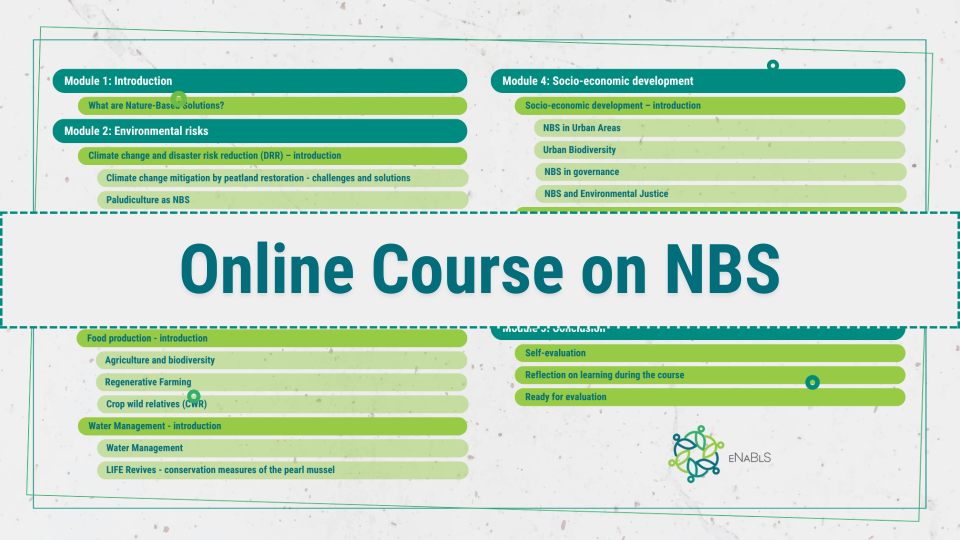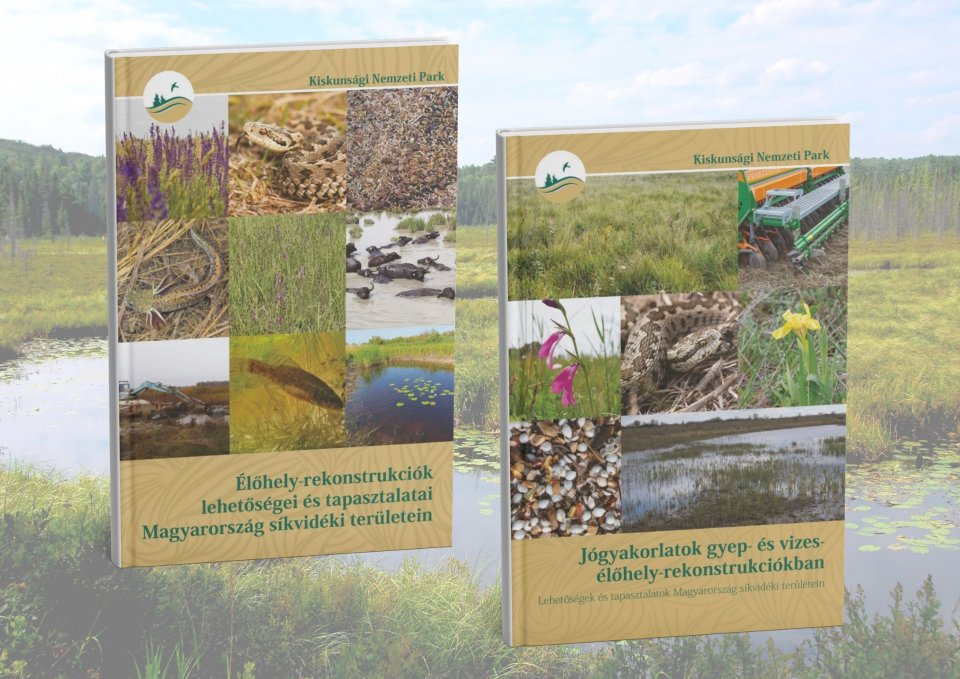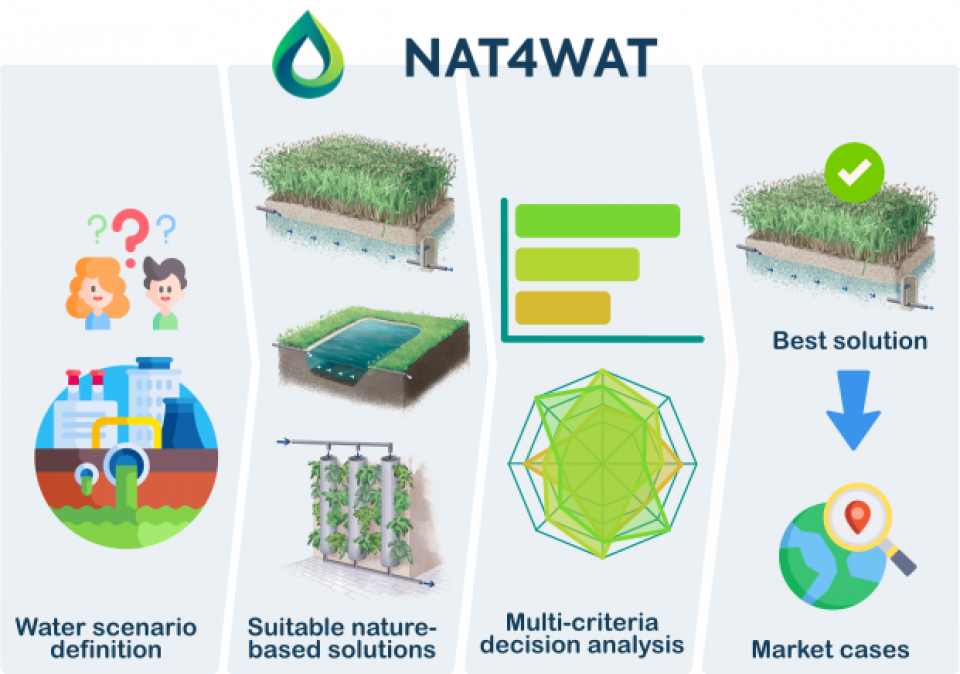Nature-based solutions resources
- Document
Good practices in Do.Na.To Project communication and technical formation
Effective communication was key in managing Douglas fir forests in Tuscany, with various project partners sharing insights through various platforms and organizing tours and conferences to promote knowledge exchange.
- Document
Creation of clonal seed orchards for the conservation of Douglas-fir germplasm
Genetic conservation and the production of high-quality locally-adapted propagation material are very important for Douglas fir, especially in the current context of climate change.
- Document
Sharing-profits methodology for community forest arrangement
The PRI.FOR.MAN Project aimed to refine profit-sharing methodology for community forest management, ensuring fair timber profits for each owner.
- Document
Community forest arrangements as ideal instance for the realization of the profit- sharing model of PRIFORMAN Project
Community forest arrangements are strategic tools in forestry for enhancing business networks and valuing agro-silvo-pastoral lands.
- Document
Support multi-object forest management plans through easy-access information
The PRI.FOR.MAN has developed a Decision Support System (DSS) specifically designed for the forestry context. Homogenising the information and making it accessible in user-friendly systems is the key to ensuring data accessibility.
- Document
Mapping of forest roads to support touristic activities
OG SURF has mapped the existing roads in its test areas using GNSS receivers and classified them based on their functionality, and identifying any maintenance issues, a prerequisite for identifying additional roads/trials to be opened in the forest.
- Document
Specific silvicultural itineraries to optimize the production of quality timber and economic yield of Pinus pinaster.
Four silvicultural scenarios have been created considering the wood quality: - Standard scenario (M2): Involves three thinnings and a final felling. - Short rotation scenario with subsidies (M4): Includes one thinning and a final felling. - No management scenario (M8): Only comprises a final
Label Bas Carbone: a national forest carbon offsetting framework
Low carbon label (LBC) applied as the French standard for carbon offsetting projects but also to label the contribution of companies and communities to CO2 sequestration in the forest, as an ecosystem service benefiting the whole society
Marteloscope
A practical tool for training in silvicultural management of chestnut, oak and beech stands located in Corrèze
Vigil'encre: Participatory science tool for epidemiological surveillance of chestnut ink
An app to diagnoze and report suspected cases with precise information and geolocation data for epidemiological surveillance of Phytophthora, helping in understanding disease distribution and its interactions with drought
- Document
The ARCHI method: a tool for diagnosing the vitality of trees
ARCHI method is focused on the architecture of a tree, as a real biological signature of its vitality, that must constantly be evaluated with different physiological states
- Document
Keys for Forest Types Classification Schemes to support the reporting of Support Sustainable Forest Management Indicators in Various Contexts
For biodiversity monitoring, GO-SURF has emphasized the need for standardization efforts, even through simple solutions such as transition tables.
Supporting the Development of National Restoration Plans
Under the Horizon 2020 Green Deal Call, four major nature restoration projects are being funded – MERLIN, REST-COAST, SUPERB, and WaterLANDS. On 10 March 2025, the four projects held a high-level meeting at the European Commission in Brussels to present and discuss evidence-based recommendations
- Document
Biomass accounting for Sustainable Forest Managment Plans using UAV data
Forest biomass and carbon are pivotal for multi-objective forest management, aiding in carbon sequestration and balance assessments.
Mapping awareness, perceptions and education on biodiversity and Nature-Based Solutions (NBS) in Europe
In ᴇNᴀBʟS, we are starting our common journey by looking at the European landscape of biodiversity and NBS, especially in higher education. One of the main goals of this basic step is to identify the presence of NBS in universities and technical vocational education and training institutions (
ZeroPollution4Water Cluster: the overview and the inventory of 32 case studies in drinking and groundwater
This report aims to provide an overview about the 32 cases studies of seven ZeroPollution4Water Cluster projects. These seven projects received funding under Horizon Europe Research and Innovation programme in 2022, aiming to prevent groundwater pollution and secure drinking water quality.
eNaBlS Online Course on NBS
A new course on Nature-Based Solutions (NBS) was launched by the ᴇNᴀBʟS team of the University of Eastern Finland (UEF). NBS utilise nature’s own processes to address various societal challenges while promoting human well-being and biodiversity. Focusing on the northern environment, the course
- Document
A Comprehensive Overview of Nature-Based Solutions
The term Nature-Based Solutions (NBS) comprises various approaches that address social and environmental challenges in a way that is beneficial to both biodiversity and human well-being. To establish a common understanding of the NBS concept among all stakeholders in the ENABLS project, this
BIODIVERZITÁS: Élőhely-rekonstrukciók lehetőségei és tapasztalatai, valamint jógyakorlat gyűjtemény Magyarország síkvidéki területeihez kapcsolódóan
Az EU természet-helyreállítási rendeletének életbe lépése miatt időszerű egy, az ökoszisztémák széles körét érintő élőhely-rekonstrukciókkal foglalkozó kiadvány, amely Magyarországra nézve hiánypótló műnek számít. Az élőhely-rekonstrukció segédlet a síkvidéki nyílt élőhelyekkel (gyepekkel, vizes
Nat4Wat
Nat4Wat is a free, web-based tool designed to help users select the best nature-based solutions for wastewater treatment and stormwater management. It works by guiding users through a step-by-step process, where they enter information about their water needs and site conditions. The tool then
- ‹ previous
- 6 of 33
- next ›


